-
European co-operation continues in Wales
Posted on May 28, 2019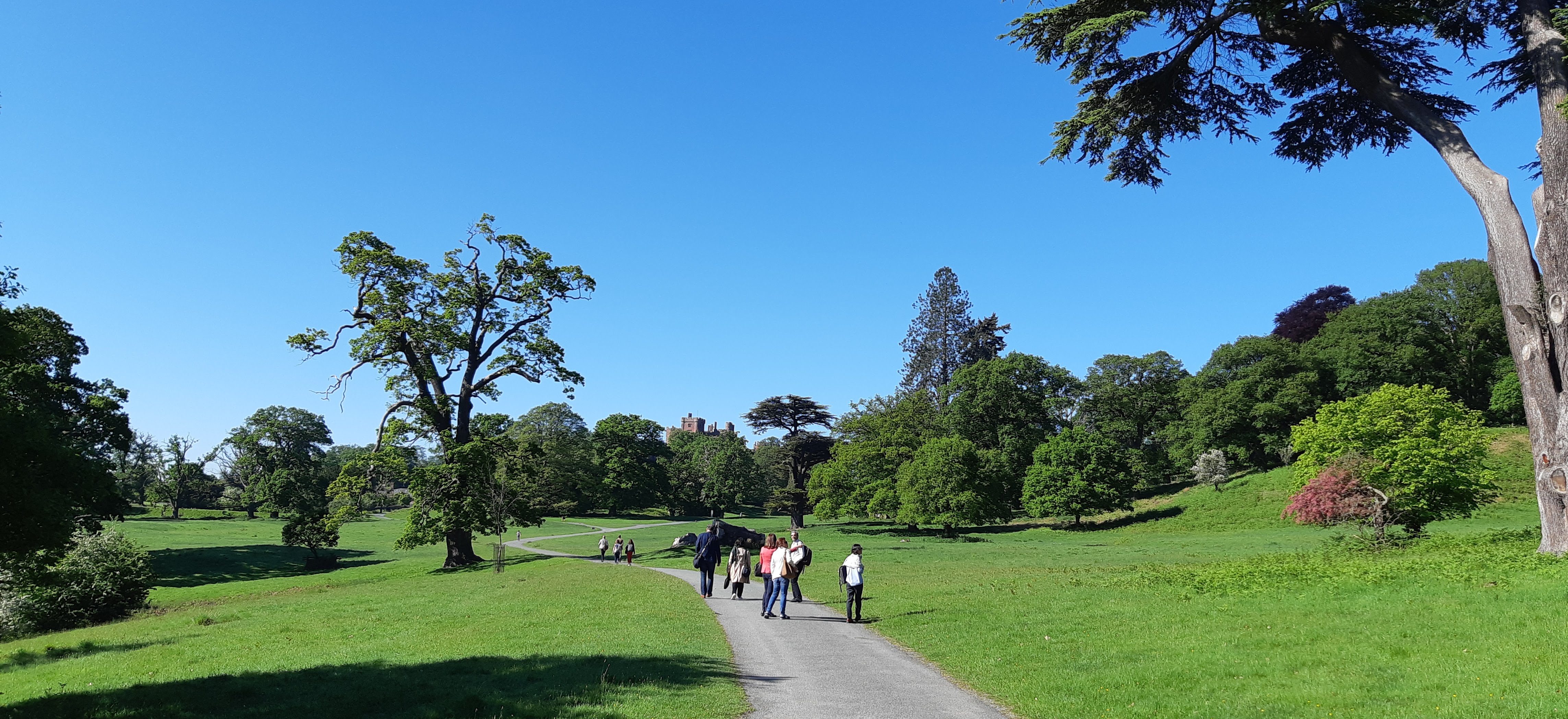
European heritage collaboration for inspiration and to improve heritage policies
Last week, a group of policy makers and heritage experts from Romania, the Netherlands, Belgium and Spain came to the UK to gather inspiration in how to better support historic castles, manors and estates in their regions. The visit is part of our Interreg Europe funded project, Innocastle, where the National Trust, through INTO, acts as the knowledge partner.
It was wonderful to have three INTO member organisations represented: Herita in Belgium, the Gelderland Trust and of course the National Trust of England, Wales and Northern Ireland. “Being part of Innocastle is an opportunity to learn and share with our European colleagues” said Catherine Leonard, INTO Secretary-General and project co-ordinator for INTO/National Trust.
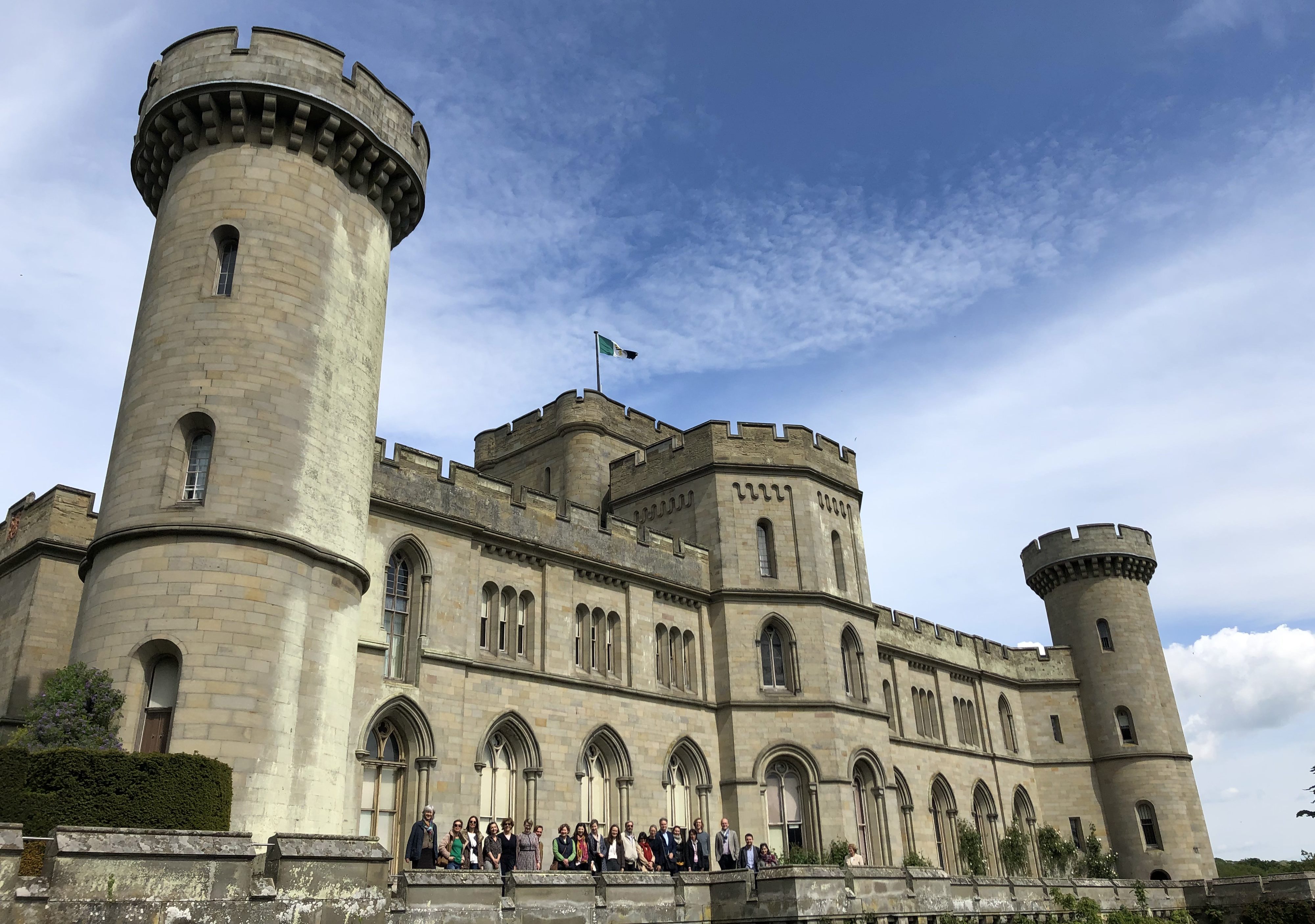
The group of 22 experts visited several castles: Powis Castle in Welshpool, Croft Castle in Yarpole, Eastnor Castle in Ledbury and Hay Castle in Hay-on-Wye. (The full programme can be found here.) The main themes approached by the partners were:
- Business diversification: Learning from the experience of their British counterparts with the aim of stimulating the development of sustainable businesses at castles, manors and estates? “I was really surprised about the business side of the National Trust. That every site has to be financially stable, it was something I didn’t expect” commented Bert de Roo from the University College Ghent in Belgium.
- Volunteering: How to create long-term engagement with local communities and volunteers? “What I liked the most is how the local community is involved at all levels – as visitors, but also as volunteers. And I think this is brilliant. This is how it should be done.” said Florentina Matache of the National Institute of Heritage in Romania.
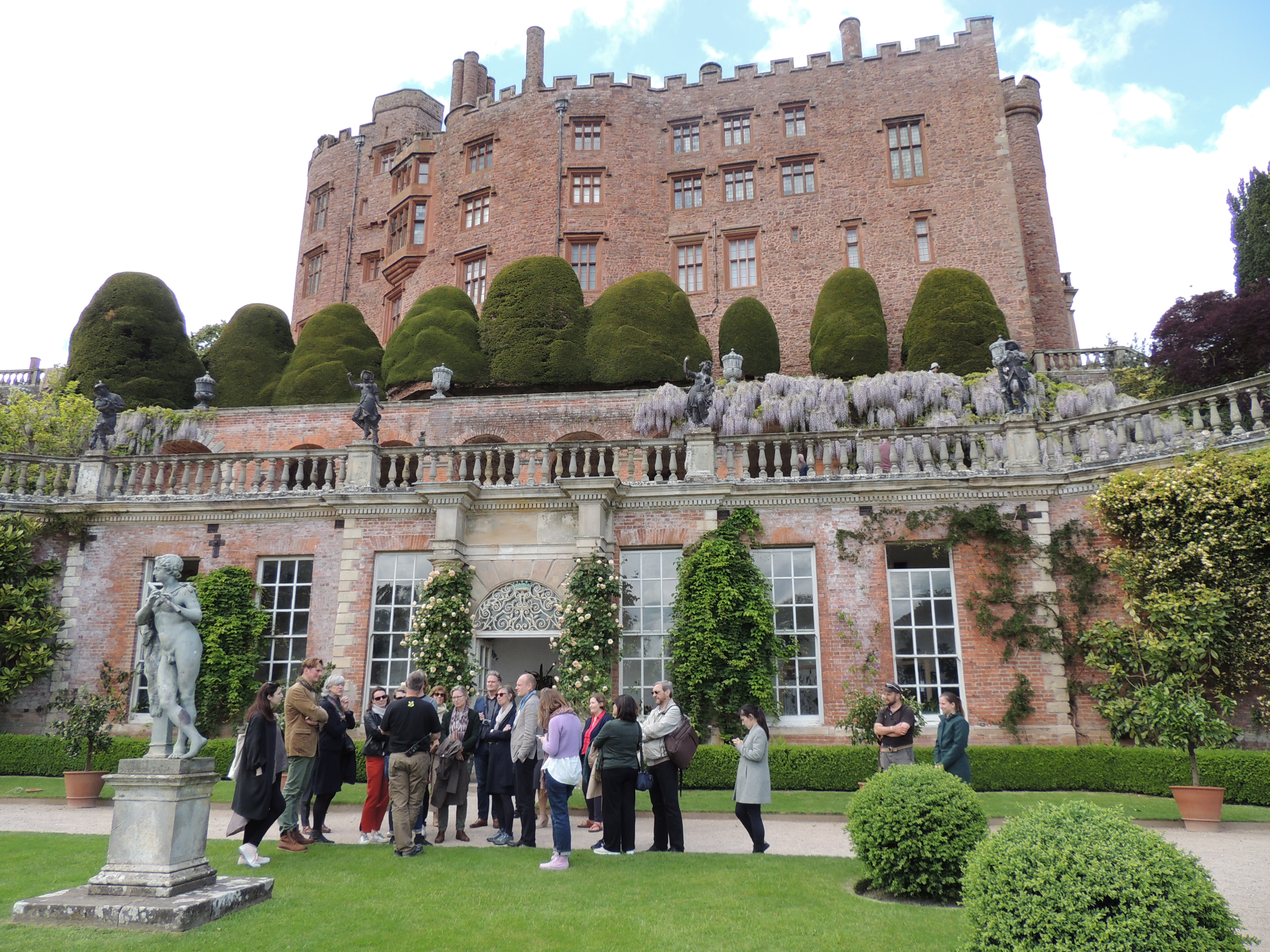
Ten top tips for INTO member organisations managing or owning properties
The following are practical ideas and practices generated during INTO/Innocastle’s visit to Wales in May 2019 that may help in making your property more visitor friendly and relevant (with many thanks to June Taboroff for pulling these together):
- Keep it open: Is it possible to extend existing open hours to holidays, evenings or simply more days a year to increase visitor numbers and repeat visitors? Think about having a Neighbors’ Day in which people living locally can visit the property free of charge and take part in activities.
- Keep it accessible for all: Are there inexpensive ways to make it easier and safer for visitors to reach the property such as installing handicap access ramps, improving parking facilities, providing bicycle to rent, or using mini buses?
- Keep it friendly: Welcome visitors – add Welcome to your entrance signs and be sure that property staff greet visitors with a genuine welcome and thank them for their visit on departure.
- Keep it interesting: Include the stories of the former inhabitants in the presentation and interpretation of the property. Delve into its history to discover events and anecdotes that will intrigue visitors of all ages and backgrounds. Use the property archive to illustrate its past.
- Keep it safe: Review security assumptions for the property, for example replacing stationary room wardens with security cameras and a roving warden. This can be cost saving – and more efficient.
- Keep it enjoyable: Provide discovery activities for children, places for children to play outdoors, seating in the house and garden, and simple refreshments. Offer a good day out.
- Keep it affordable: Analyse revenues from the property – ticket sales, catering, rental for weddings, filming etc – to understand what is doing well and where you earn the highest margins. What are other ways to pay the bills?
- Keep it in the eye of local and national government: Seek out ways to align the interests of your property with politicians and policy makers by investing energy into identifying areas of mutual interest such as education and training, transport access, and health and well being.
- Keep planning: Involve staff in setting priorities for maintenance, training, and programming. Encourage their ideas.
- Keep in sight the property and its surroundings: Understand the connection between built heritage and landscape and see how these elements can be brought together in the site’s presentation and activities for enjoyment.
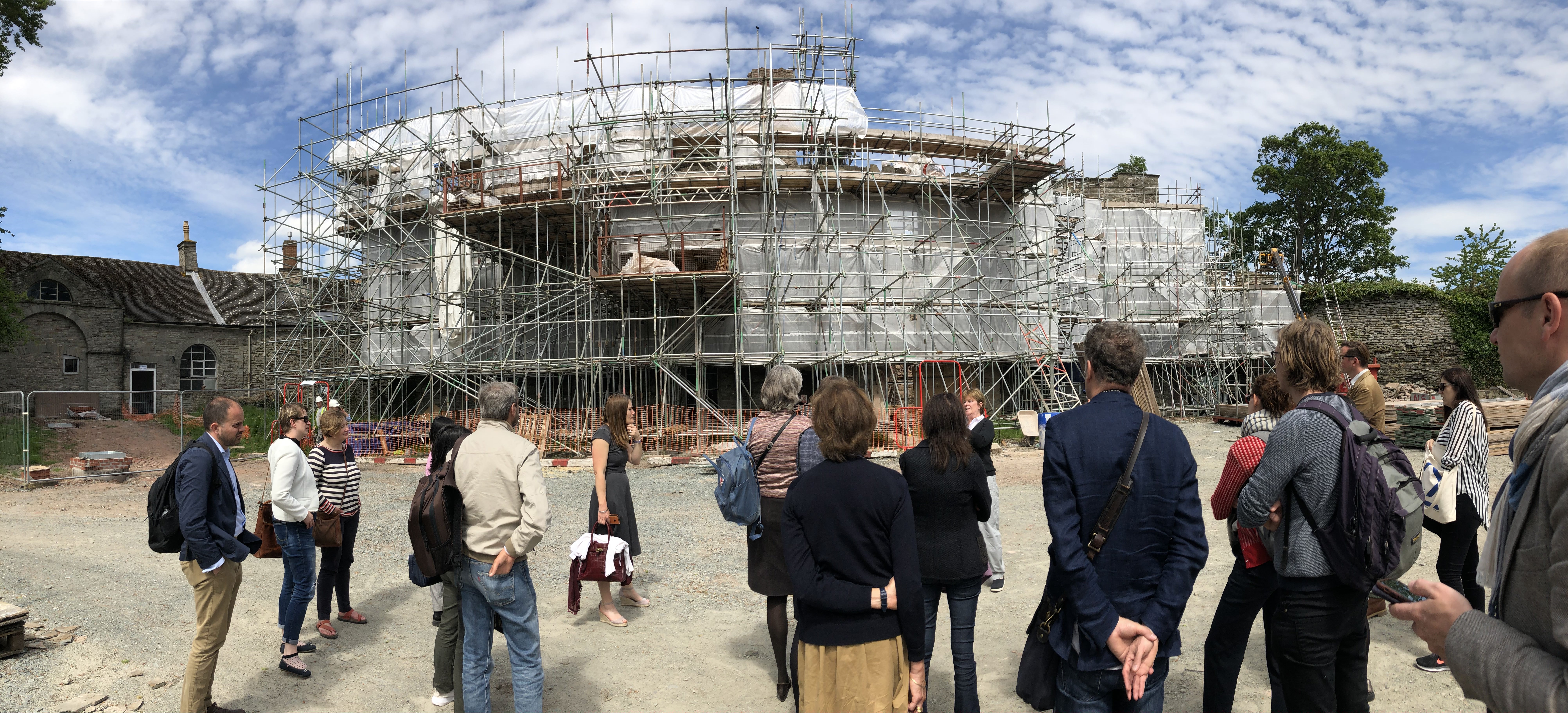
The value of European co-operation knowledge sharing
In a recent publication ‘Fostering Cooperation in the European Union on Skills, Training and Knowledge Transfer in Cultural Heritage‘, the value of projects like Innocastle is underlined:
“In the space of just a few years, the European policy framework on cultural heritage has been completely overhauled, moving towards a people-centred and holistic approach, and eliminating the divisions between the tangible, intangible and digital dimensions. It sees cultural heritage as a shared resource, highlighting that all stakeholders share responsibility for its transmission to future generations. It stresses the need for a more integrated approach to conservation and management, across different policy areas, in order to maximise the benefits to economy, culture, environment and society as a whole. It acknowledges the opportunities that new technologies offer to preserve cultural heritage, and to enhance the visitor experience and public engagement at heritage sites and museums. This new framework changes the way in which cultural institutions manage, protect and provide access to their heritage. It changes the way in which citizens and communities engage with their cultural heritage and also naturally influences the way that professionals deal with it.”
“The most effective way to manage, protect, promote and enhance Europe’s irreplaceable cultural heritage is to ensure that the people who do this work (and all stakeholders who make decisions affecting cultural heritage) have the traditional and emerging skills required to fulfil these complex, challenging and necessary roles.”
“While Europe is renowned for its expertise in this sector, the transmission of knowledge and skills is impacted by the combined effect of Europe’s age pyramid, cuts to public budgets, the digital shift and the academisation of society. New skills and competences are needed to progress towards a more integrated and participatory management of cultural heritage, and better use of the opportunities offered by new technologies. Europe urgently needs to enhance, promote and protect the technical and professional skills of the people who ensure the longterm sustainability of its cultural heritage. People are central to the transfer of knowledge and skills, so it is important to invest in them in order to safeguard Europe’s heritage.”
You can read the full report here.
Continuing the conversation, Thursday 30 May 2019 at the Hay Festival
The conversation will continue during the debate National Identity and the idea of European Unity when European heritage experts Dr Irena Edwards (Czech National Trust), Joep de Roo (Innocastle and OpenHeritage), Sneška Quaedvlieg-Mihailović (Europa Nostra) and chairman Justin Albert (National Trust Wales) will be discussing questions of local loyalties in relation to the cosmopolitan idea of world citizenship through the lens of heritage and history. (You can now read Catherine’s report on the Hay Festival debate here.)
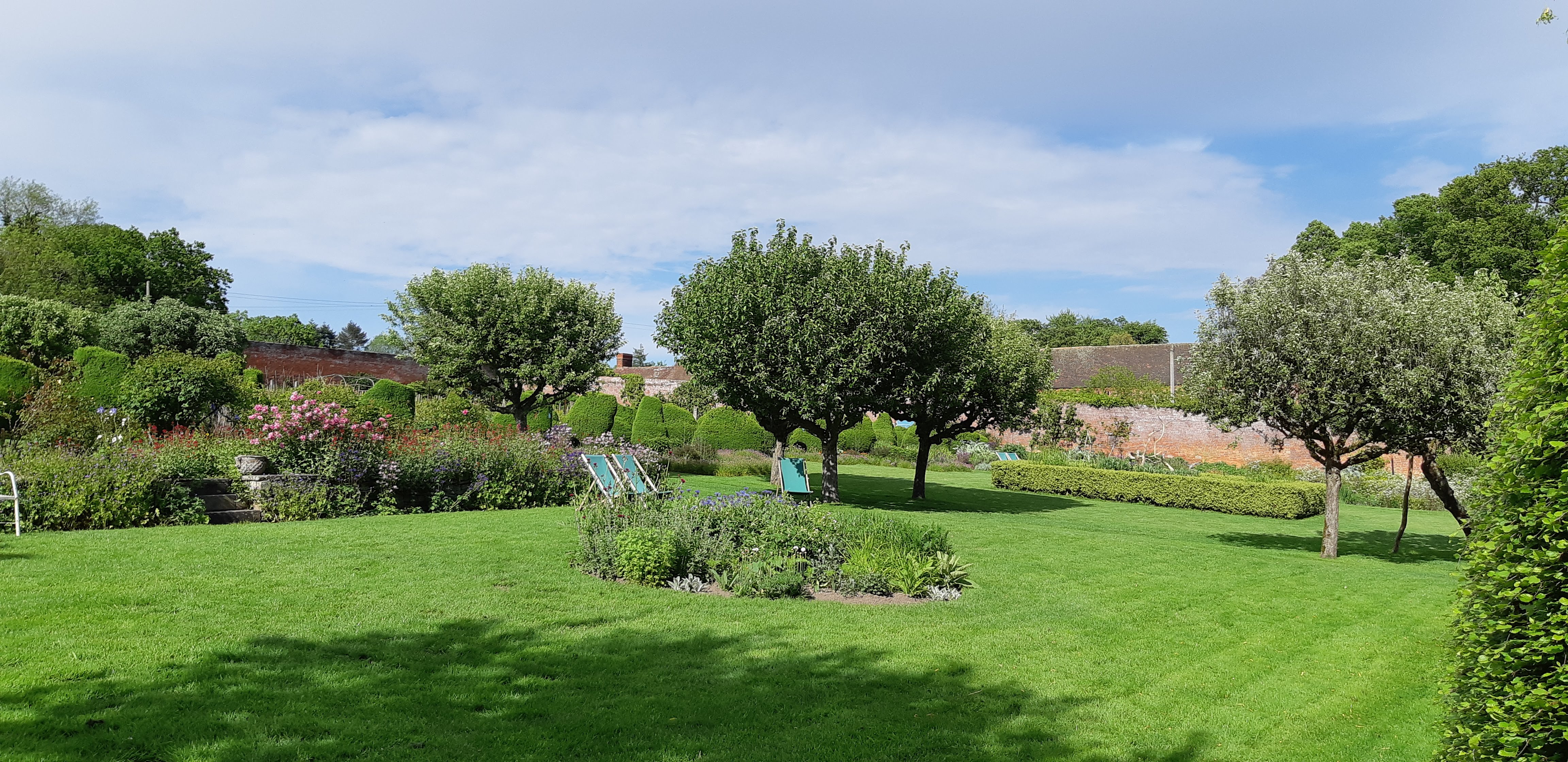
Innocastle – Innovating policy instruments for historic castles, manors and estates
European historic castles, manors and estates have the potential to become local catalysts for regional development and innovation. Innocastle prepares them for the future by stimulating resilient policies for conservation, transformation and exploitation. The consortium of partners is composed of: National Institute of Heritage in Romania (lead partner), University College Ghent in Belgium, Province of Gelderland in the Netherlands, Provincial Government of Badajoz in Spain and the National Trust in the United Kingdom of Great Britain and Northern Ireland (knowledge partner). The project is financed by Interreg Europe, with a total budget of €1,120,335.00 (85% ERDF, 15% national co-financing).
You can find out more about the Innocastle project here.

 44 (0)20 7824 7157
44 (0)20 7824 7157